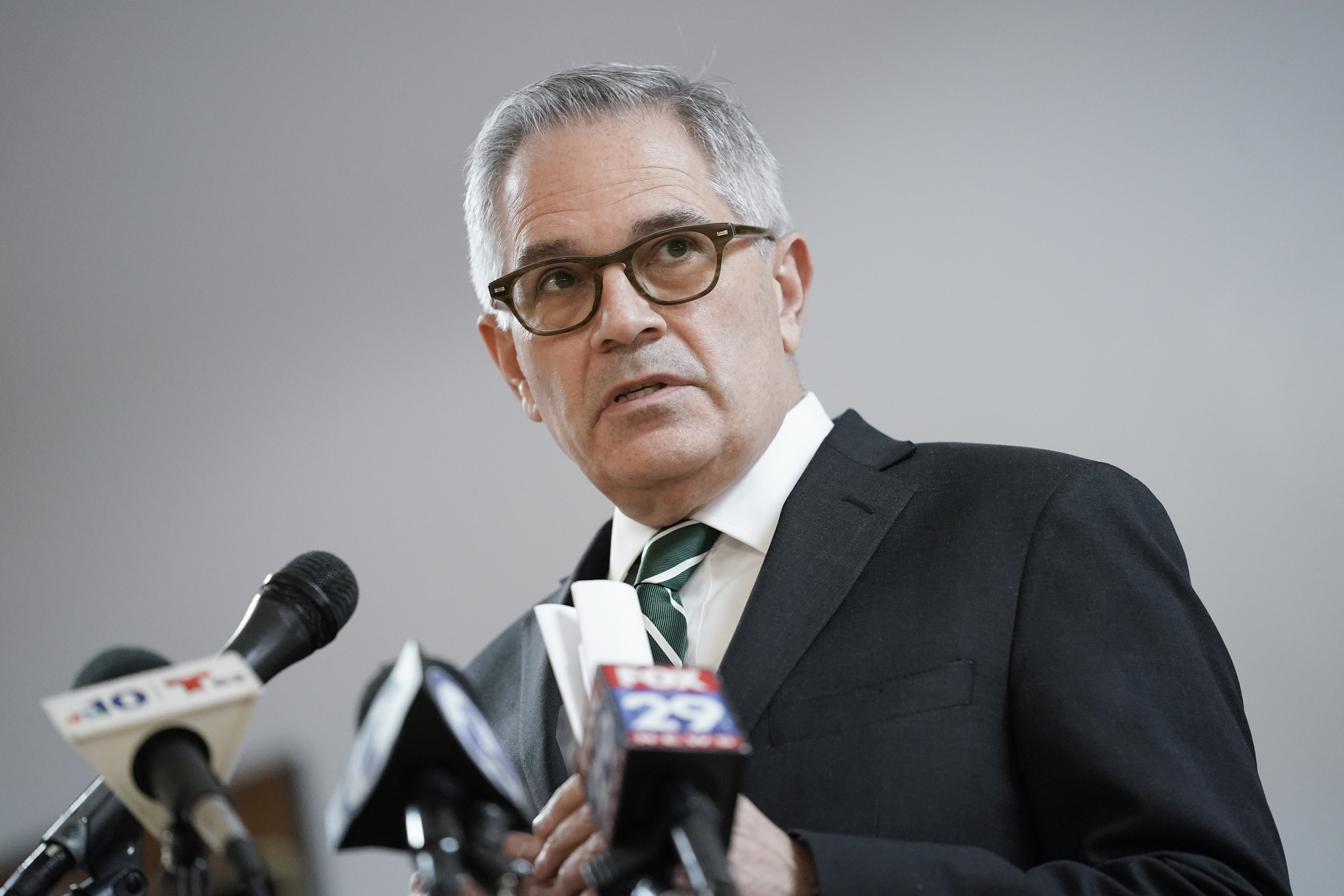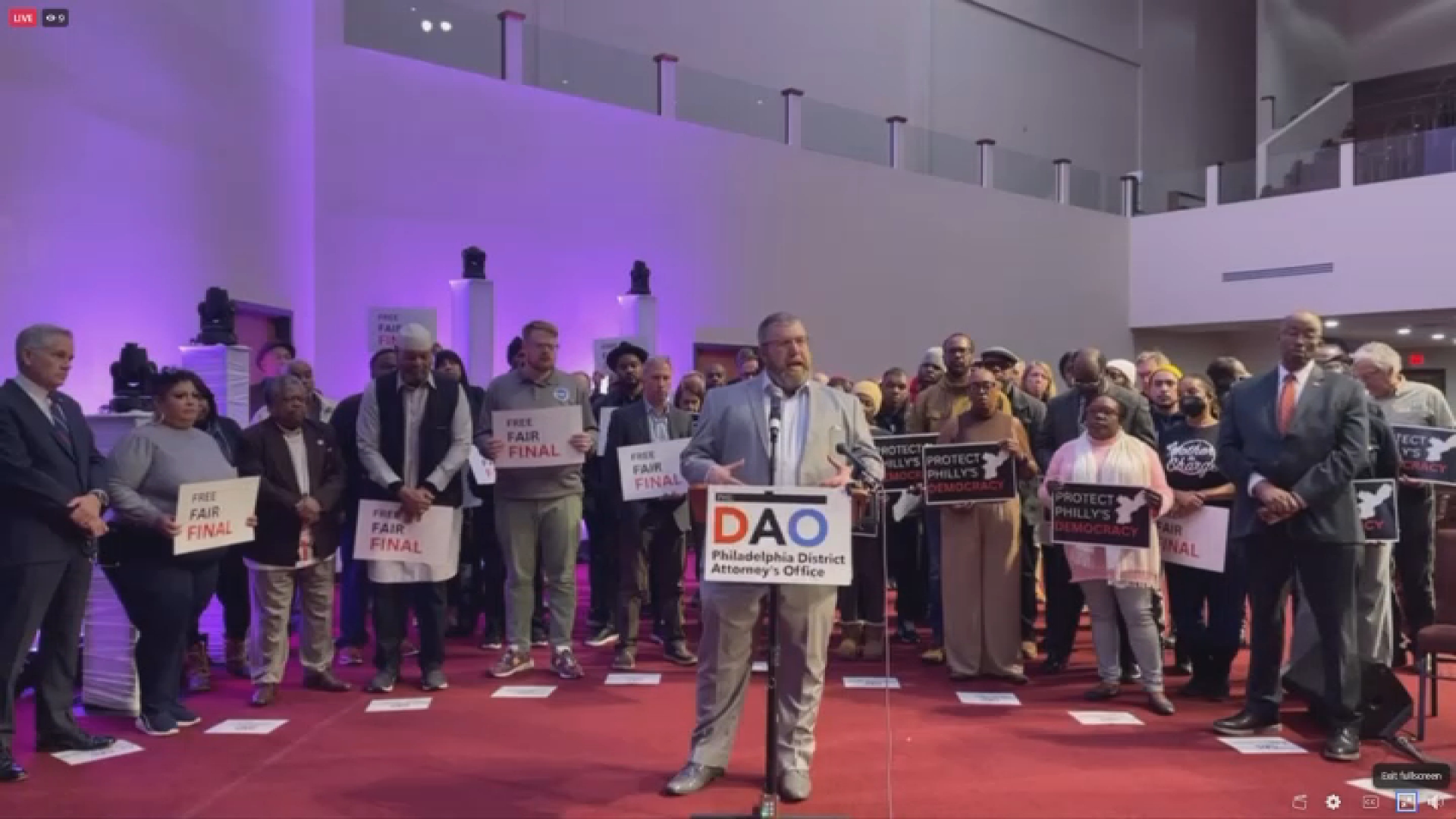With a new law that would give a special prosecutor jurisdiction on any crime committed on SEPTA property, Governor Josh Shapiro has said legislators are looking to provide law enforcement officials with additional tools to prevent crime in the city.
But, Philadelphia District Attorney Larry Krasner claimed Wednesday that some of the governor's comments on the new law were "flatly untrue."
"Any suggestion that this was somehow 'just helping' the District Attorney's office to give an unelected prosecutor the right to take away as much as 80-percent of all of our cases is flatly untrue," Krasner said when asked about the governor's statements.
The governor made the comments to NBC10's Lauren Mayk, in the latest episode of "Battleground Politics," claiming that the law was simply a case of "concurrent jurisdiction" and that Krasner would see no power removed from his office.
Get top local stories in Philly delivered to you every morning. Sign up for NBC Philadelphia's News Headlines newsletter.
But, perhaps, the two elected officials read the language of the law differently.
Shapiro said that the move wouldn't impact Krasner's jurisdiction and would instead enable a special prosecutor -- to be hired by the state's Attorney General's Office -- to step in and handle cases that involve crimes on SEPTA property to provide additional law enforcement support for the mass transit system.
He called it a case of "concurrent jurisdiction" that would protect Philadelphia residents.
"We are not taking away power, we are adding law enforcement resources," Shapiro said recently. "I'm the former Attorney General of Pennsylvania. We have concurrent jurisdiction with DAs in a whole range of cases, that's nothing new. Having that concurrent jurisdiction, bringing more law enforcement resources into the City of Philadelphia is a good thing."
But, Krasner doesn't see it that way.
His office has argued that this special prosecutor would take away his jurisdiction over most of the city, as the yet-to-be-appointed office would oversee crimes that occur on or within 500 yards of any SEPTA property.
Krasner's office has argued that through Pennsylvania's Title 22 -- and an amendment that provides college police forces authority on crimes on or within 500-yards from campus -- the special prosecutor could have jurisdiction over a majority of the city.
He said that, because of this, the move would erase the will of voters as these cases would then be tried by an individual who was hired and selected for the position by the Attorney General's office, instead of having cases prosecuted by someone elected by Philadelphia residents, as he was.
"What occurred with that bill is in fact, the erasure of 155,102 votes," he said.
Krasner has announced that he plans a legal fight over the special prosecutor law.
But, he also said that he would gladly sit down with Mayk and the governor to discuss the issue.
"Then, maybe we can have a robust exchange of ideas," suggested Krasner.
NBC10 is working with Krasner's office to set up an interview in the near future.
You can subscribe to Battleground Politics on Apple, Google, Spotify, or wherever else you get your favorite podcasts. You can also watch or listen to every episode right here on NBC10.com, the NBC10 YouTube channel, and in rotation on our streaming channels.
Subscribe to Battleground Politics anywhere you get your podcasts: Spotify | Amazon Music | Apple Podcasts | Google Play (soon) | Art19 | RSS | Watch on YouTube
Sign up for our Breaking newsletter to get the most urgent news stories in your inbox.




